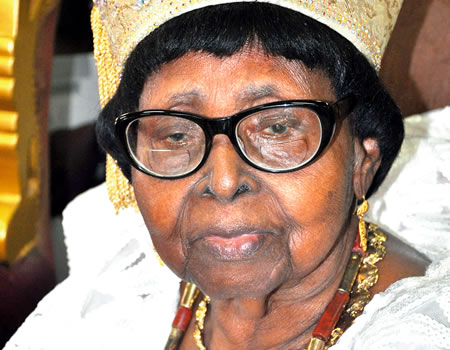Death in the Dawn
BEFORE he left for Cambridge University, UK, to study law like his father,he attended Agbeni Methodist School, Ibadan from 1943 to 1951 and Igbobi College, Lagos from 1952 to 1956. He sat for the West African School Certificate Examination in 1956 and passed in grade one. He left for the UK in 1957. He returned to Nigeria in 1962 and enrolled as a Solicitor and Advocate of the Supreme Court of Nigeria.
He first struck most people as a “playboy” or the “spoilt child” of a “big man” because of his boyish smile, disarming mien and the attention of many young girls he effortlessly commanded. He also fairly savouredthe attention. But underneath all that was an astuteness and gravity that struck everyone who interacted with him closely.
Wole Soyinka, the then young playwright and social activist was one of those who once dismissed Segun Awolowo “as one of the spoilt scions of the new political families” in Nigeria. However, Soyinka states that while as a student in the UK, to some degree, the son of the former premier had lived life to the full, on his return to Nigeria,SegunAwolowo was a man with “a clarified sense of mission, shedding the image of the young, pampered playboy”. One day in 1963, as the man who would later win the Nobel Prize in literature twenty three years later reveals, Segun sought him out in Ibadan. Soyinka was initially suspicious of the motives of his visitor. The host was close to Akintola’s children, but had not been anywhere close to the Awolowos. He wantedto know what “his ‘elder brother’” (Soyinka) “actually thought of the politics of the country, pressing on him earnest, searching questions”. The author of Season of Anomie recalls that Segun’s earnest, searching question directed at him gave the impression that “he wanted to cut a clear path of his own, unfettered by his father’s own determined course and his overwhelming personality”.
What pretended to be a brief visit turned into what the Nobel laureate describes as “a long afternoon” with someone Soyinka “quickly came to recognize as a kindred spirit,” whose transition, the wordsmith later described in a poetic tribute, as “a fresh plunder/of my youth…..”
AS SHE WAS IN THE BATHROOM, Tola went over in her mind the implications of the dreadful dream she hadhad in the night. Anytime he had to travel early in the morning, Segun would normally stop by in the apartment where his sister lived just beside his own flat to greet her and say goodbye. Since she hadn’t heard from him this morning, she dressed up quickly and walked across to her brother’s apartment to tell him about his dream and persuade him against travelling to Lagos since, in the dream, he travelled to Lagos but never returned. There was no indication of what happened to him in the dream. He just never returned. He just vanished.
When she knocked on his door, there was no answer. It was only a few minutes after seven in the morning. She checked the front of the house. Then it dawned on her that her brother had left for Lagos because his car was no longer there. He always said goodbye, Tola thought.
This fateful morning, he never said goodbye……
“Judge, your honour,” said the (convicted man), “that is going to be hard for me to do!”
“Well,” replied the judge, “just do the best you can!”
This was one of the jokes that SegunAwolowo shared with his friends and siblings, as retold by his only brother, Wole. He shared many such jokes about the courtroom and many other contexts of the human drama. The younger Awolowo, who was appointed the publisher of the Nigerian Tribune long after the death of his elder brother, fondly remembers his brother as one with a “strong sense of humour”.
In the one year and more that he lived in Ibadan after he became a lawyer, he occasionally hosted friends in his flat for midnight barbecue which he took charge of. He also played the trumpet. He loved to copy Miles Davies’ distinctive style with his trumpet. The American jazz musician and trumpeter, who is considered one of the most influential jazz musicians of the twentieth century, was SegunAwolowo’sfavourite. The year before he returned to Nigeria, Davies had released his popular album, “Someday My Prince Will Come.”
Bisi Lawrence, the legendary Vanguard columnist and veteran journalist, was one of SegunAwolowo’s friends in Ibadan with whom he enjoyed the early 1960s. The septuagenarian journalist corroborates Segun’s abilities on the trumpet. He was “a musician in his own way, a raconteur after a fashion”. Lawrence, echoing Soyinka, adds that beyond his breezy side, SegunAwolowo was ‘in every consideration a philosopher of no mean mettle”.
Often after his friends departed during the occasional get-together, Segun would return to his law books to prepare for court appearances. He had spent the night of July 9, preparing for the ongoing treasonable felony trial of his father. He went over what he needed to discuss with him the next day when he met him at the Broad Street Prisons where he was being held. He also called his mother, as he often did daily. They exchanged information about what was going on in Lagos and Ibadan. She would tell him about the shenanigans of the Balewa government and the prosecutors as well as the state of mind of his father in prison. He told her about how he and his sister were doing in Ibadan and the state of the chambers.
This night, Segun called his mother on the telephone promising her that he will be with her in the rented apartment in Somolu early the next morning so they could both visit his father together in jail. H.I.D would be taking her husband’s breakfast to him in the morning, so Segun wanted to join her. He also wanted to share something confidential with her when they met the next day. She was looking forward to his visit, H.I.D assured her son. He prayed for a safe journey and they ended the call. It was the last time Hannah would hear the voice of her first son; his sunshine would disappear from her life the next dawn, leaving an unhealable pain that she would bear for the rest of her days……
It was unusual for Segun not to be prompt, knowing that his father was a stickler for punctuality. H.I.D waited and waited for him to arrive, checking every time she heard the sound of a car. It was getting late to take her husband’s breakfast to him in jail, yet the son had not arrived. Perhaps something delayed him on the way and there was no way he could make it on time. Hannah decided to take the breakfast to Broad Street Prisons, in the hope that whenever Segun arrived, he would either join her there or wait for her at home.
When she returned from Lagos Island, Segun had still not arrived. She was now worried. This was unusual. If he had changed his plans, then he would have telephoned from Ibadan. She called the house in Ibadan. Nobody was there to pick the call. Tola had also left for work at Jericho. What was going on?
As she sat thinking about what had happened to Segun, she got a call which asked to confirm if “Mama Segun” was the one on the other end. She was positive. Then the caller told her a frightening news.
“Segun’s car was involved in an accident on his way from Ibadan to Lagos”.
She exclaimed. What was this, for goodness sake!
But the caller assured her that it was nothing serious. Her son only had minor injuries, nothing to worry about. He had been taken to Adeoyo Hospital in Ibadan to see a doctor. He was fine, the caller reassured her. By this time, she thought she was in a trance. Not in the middle of all this, Christ! Many questions circulated in her mind. But she prayed silently that he was indeed fine; that nothing fatal had happened. No, she thought, nothing fatal could happen to her precious son. He was her chief comforter in the perilous times when the love of her life was bearing the gravest burden of the life they shared.
In the meantime, she had to leave for Ibadan immediately. But then, she had her husband in Lagos to attend to too. She called her sister-in-law, AnotoAwofeso. She had to take over the preparation and delivery of her only brother’s meals to Broad Street Prisons for the rest of the day. She was travelling to Ibadan urgently because Segun had had an accident. Anotu prayed for the best while promising to fill-in for her in Lagos…..
TO BE CONTINUED
EBINO TOPSY – 0805-500-1735 (SMS ONLY PLEASE)
WATCH TOP VIDEOS FROM NIGERIAN TRIBUNE TV
- Let’s Talk About SELF-AWARENESS
- Is Your Confidence Mistaken for Pride? Let’s talk about it
- Is Etiquette About Perfection…Or Just Not Being Rude?
- Top Psychologist Reveal 3 Signs You’re Struggling With Imposter Syndrome
- Do You Pick Up Work-Related Calls at Midnight or Never? Let’s Talk About Boundaries








